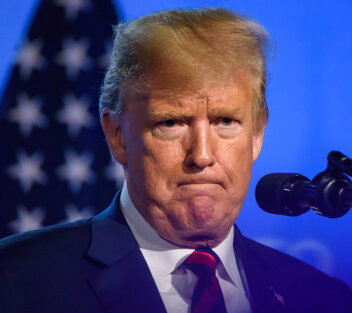
UK races to dodge Trump tariffs with trade deal
Listen To Story Above
Britain’s government is racing against time to secure a post-Brexit trade deal with Washington, aiming to avoid or reduce the impact of new tariffs that US President Donald Trump plans to announce on Wednesday.
Following its departure from the European Union at the start of the decade, Britain has been actively pursuing a trade agreement with the United States, though previous attempts under the Conservative government proved unsuccessful.
Labour Prime Minister Keir Starmer’s late February visit to Washington sparked optimism about potential progress. Trump expressed enthusiasm about reaching a “great” deal that could help Britain avoid tariffs, while praising Starmer’s negotiating abilities.
Diplomatic efforts have intensified, with Business Secretary Jonathan Reynolds making a recent trip to Washington, and both leaders engaging in direct phone conversations this week.
The UK is holding urgent talks with the US government in a bid to avoid being hit by extra tariffs planned by President Donald Trump, Chancellor of the Exchequer Rachel Reeves said https://t.co/NDgbtSF0JA pic.twitter.com/Wd3bRXrO3h
— Bloomberg (@business) March 27, 2025
The British government is pushing to reach an agreement before April 2, dubbed “Liberation Day” by Trump, when he plans to introduce what he calls “reciprocal” tariffs customized for different trading partners.
This development follows Trump’s recent announcement of substantial tariffs on imported vehicles and auto parts, promising retaliatory measures as trade tensions mount and consumer costs threaten to rise.
“We’re engaged in discussions with the United States about mitigating the impact of tariffs,” Starmer said heading into the weekend.
Finance Minister Rachel Reeves adopted a conciliatory tone on Thursday, stating Britain would avoid “escalating” trade wars, contrasting with more aggressive responses from other major economies regarding the automotive sector tariffs.
The potential agreement, which Number 10 describes as an “economic prosperity deal,” suggests a more limited scope than the comprehensive free trade agreement London ultimately desires.
The United States currently stands as Britain’s largest individual country trading partner.
“Some type of arrangement that might let the UK escape some tariffs is possible but it would not be a full-scale trade deal,” Jonathan Portes, professor of economics at King’s College London, told AFP.
“Brexit is a double edged sword — it gives us more flexibility and we can negotiate with a view to our own interests.
“But equally, it means we have less weight than as part of the EU and moreover we cannot afford to agree to anything that complicates our trading relationship with the EU,” Portes added.
Reports in British media suggest London might consider eliminating its tech giant tax to avoid Trump’s tariffs and facilitate a trade agreement.
Addressing these reports, Starmer emphasized that “in the end, our national interest has to come first, which means all options are on the table.”
Britain Looks to Ink Post-Brexit Trade Deal with Trump to Avoid Tariffs https://t.co/kEN9RuRJUX via @BreitbartNews
Good to see that the U.S. doesn’t have to take it in the shorts anymore.
— Crazy Rolls On (@Dragontail110) March 29, 2025
His spokesman indicated that Britain remains committed to ensuring “businesses pay their fair share of tax, including businesses in the digital sector.”
The digital tax currently generates approximately £800 million ($1 billion) annually for the UK Treasury.
Reynolds acknowledged potential flexibility regarding the digital tax, noting it’s not “something that can never change or we can never have a conversation about.”
Both Portes and David Henig, director of the UK Trade Policy Project, cautioned against modifying Britain’s tax policy based on Trump’s tariff exemption promises.
“If Trump keeps his word and the UK gains significant benefits as a result, then eliminating a tax could be a good deal,” Henig told AFP.
“That, however, is quite a gamble.”




